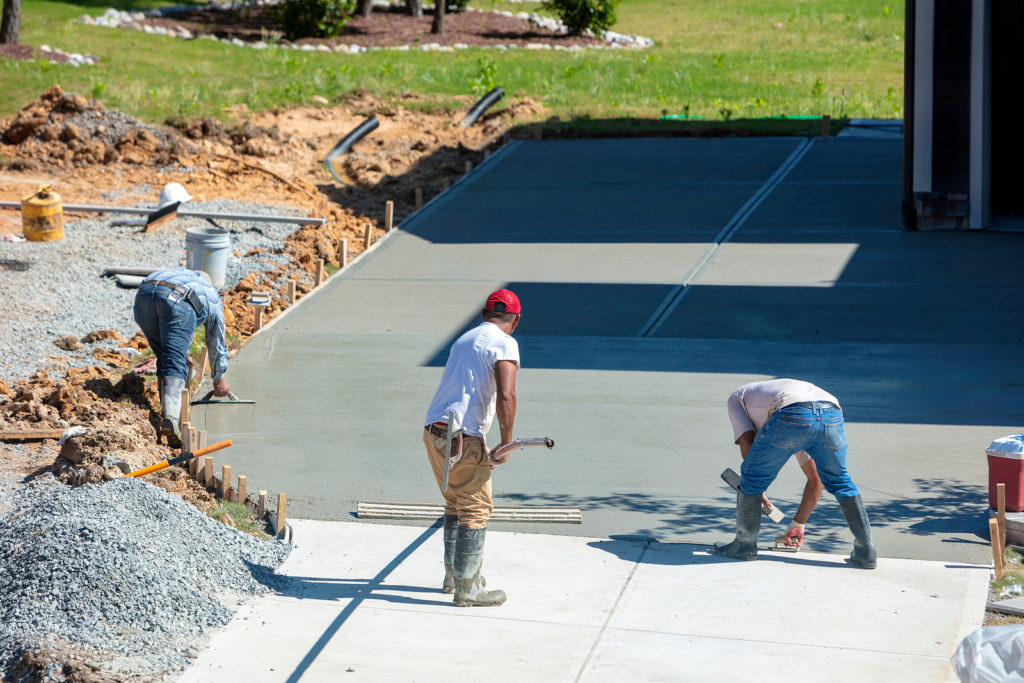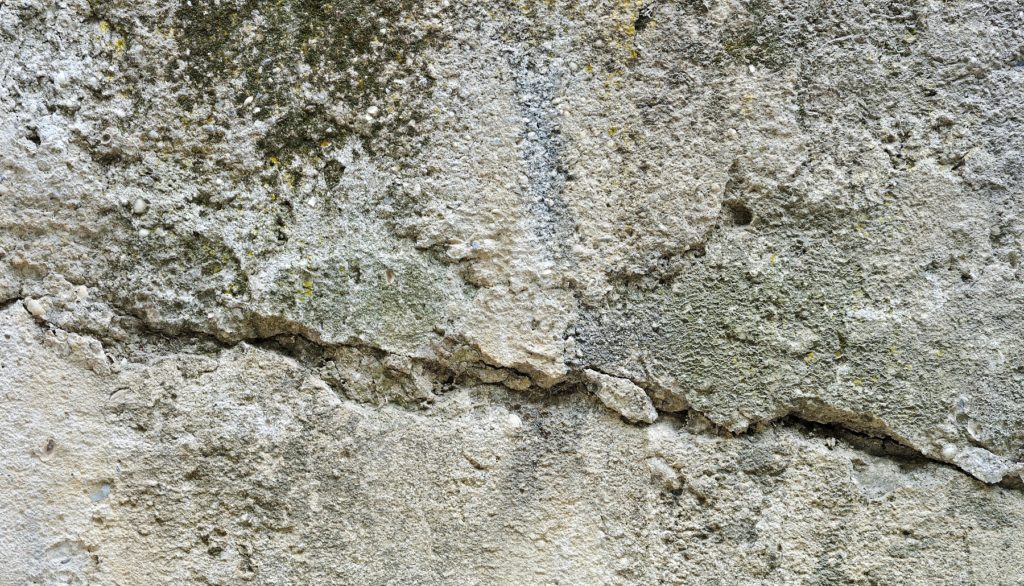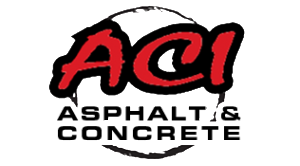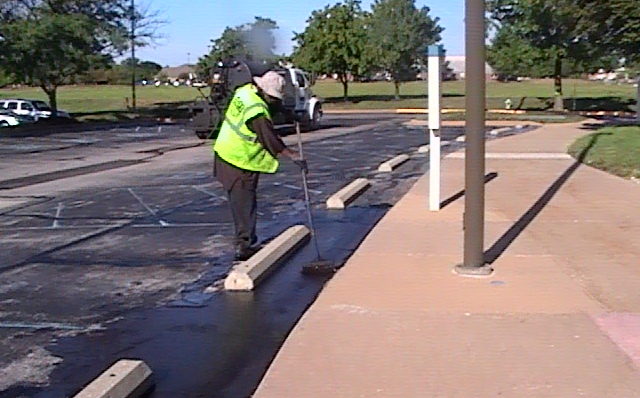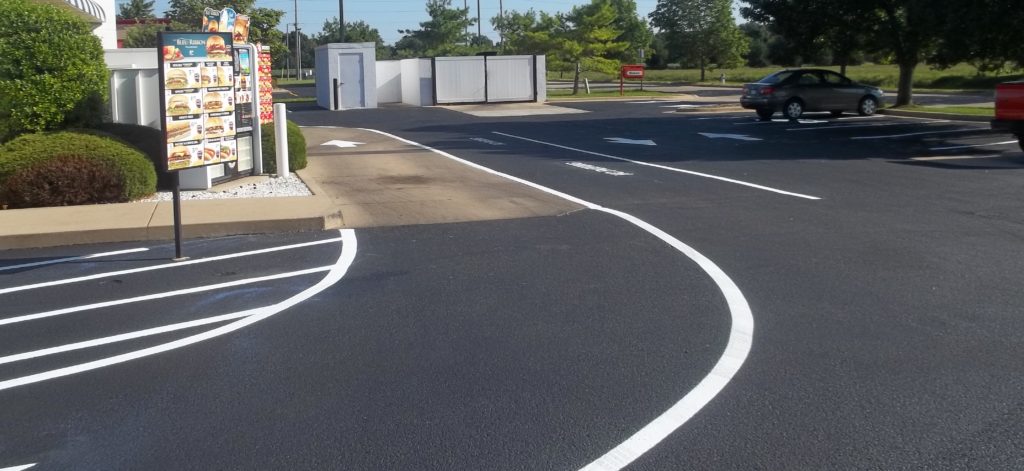If you have old, existing concrete foundations on your commercial lot, it is likely that they are in need of a little restoration or repair. One of the most cost-effective and easy options for old, existing concrete improvement are overlays. Concrete overlays are installed directly on top of existing foundations, which means there is little to no demolition or excavation necessary. They are great options for parking lots, sidewalks, plazas, courtyards, patios, driveways, and many other areas of paved surfaces.
Continue reading to review the answers to some of the most frequently asked questions about commercial concrete overlay application, performance, appearance, and maintenance.
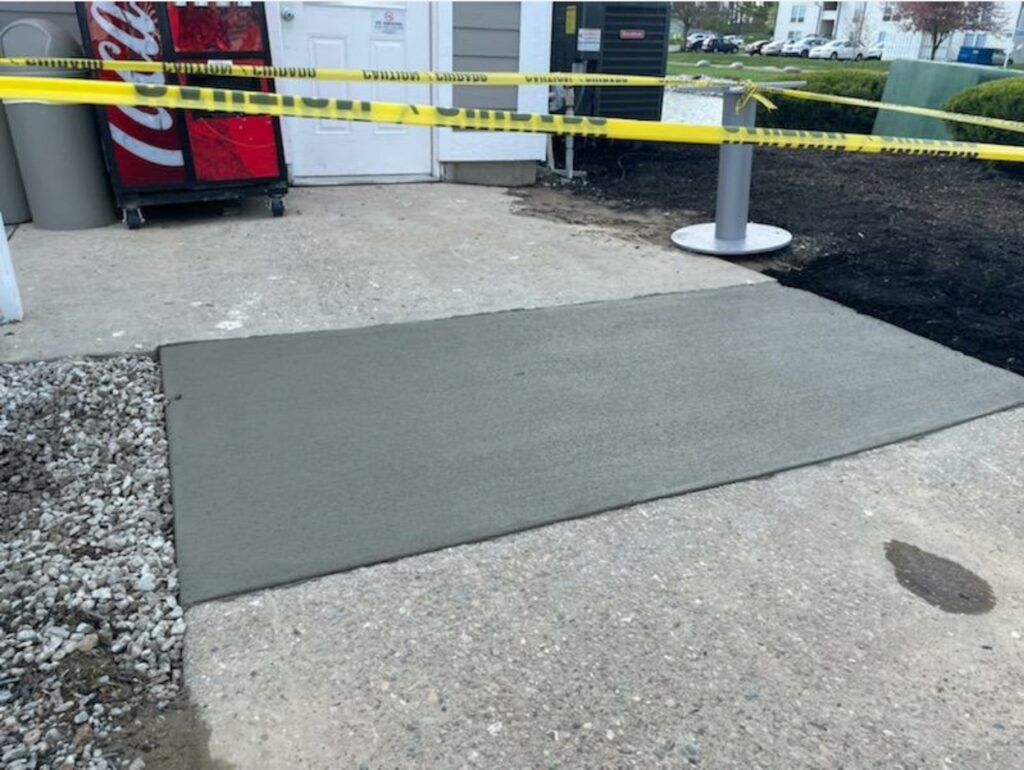
Frequently Asked Questions About Concrete Overlays
Where Can Concrete Overlays Be Applied?
Any existing concrete surface that is in sound condition is a good candidate for overlay installation. A few cracks here and there are not usually an issue, but if the foundation is heaving, crumbled, or full of crevices, it is not a good candidate. A licensed and insured Indianapolis commercial concrete contractor can provide an assessment to determine if your property is a good candidate for concrete overlays. Everything from commercial parking lots and sidewalks to athletic courts, pool decks, paved trails, and more can be overlain with a freshly-paved layer of concrete. Overlays are also a great option for stained or discolored surfaces.
Are Concrete Overlays Durable?
Commercial concrete can last a long time with good care. Plus, with proper installation and the use of concrete sealers, concrete overlays can withstand the elements and natural wear and tear for several years. They can also be polished to a smooth, even finish. This adds more protection, especially on high-traffic pavements. Concrete polishing is a great option for surfaces that are blemished, discolored, or stained.
What Does a Concrete Overlay Look Like?
For the most part, a concrete overlay will look much like a smooth, grayish-white surface. But the great thing about concrete is that it is a highly versatility paving material. It can be polished, stained, colored, stamped, decorated, molded, shaped, dyed, and much more. These paving options can give standard gray concrete a decorative appearance, and even mimic higher end materials like brick, tile, cobblestone, and marble. This makes it an extremely cost-effective alternative to these materials and more. Concrete is also easier to clean and care for, making it less labor-intensive for the property owner.
How Do I Maintain Commercial Concrete?
Although concrete is one of the most common paving materials used across the world, admired and sought-after for its various properties, it is also porous, which means it is susceptible to certain damages caused by natural elements, chemicals, and more. For this reason, concrete requires proper installation, routine maintenance, and sometimes, repaving, overtime. What kind of maintenance? Routine sweeping, power washing, debris removal, crack filling, and weather management are all important elements of a responsible and effective concrete maintenance plan. These routine tasks will allow paved concrete to maintain a fresh and smooth appearance.
Are you looking for a trusted Indiana commercial paving company to restore your concrete pavements? Contact ACI Asphalt and Concrete at 317-549-1833 to speak with a seasoned commercial paving contractor in Indianapolis, Indiana today. We specialize in both asphalt and concrete work for commercial and industrial clients.
Related Posts:
Is it Possible to Lay Asphalt on Top of Concrete?
Common Questions About Sealing Concrete Pavements
Is Concrete Cheaper Than Asphalt?

